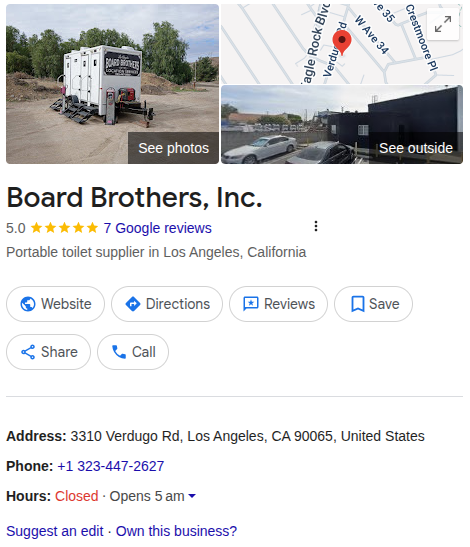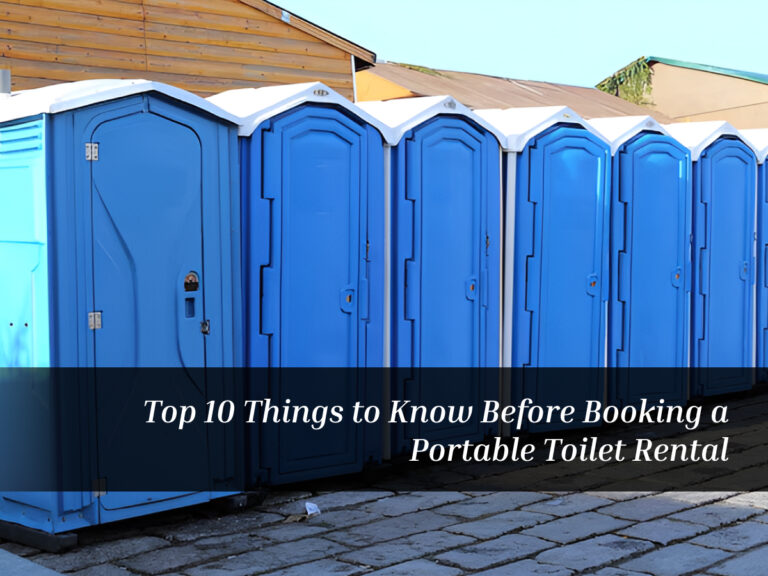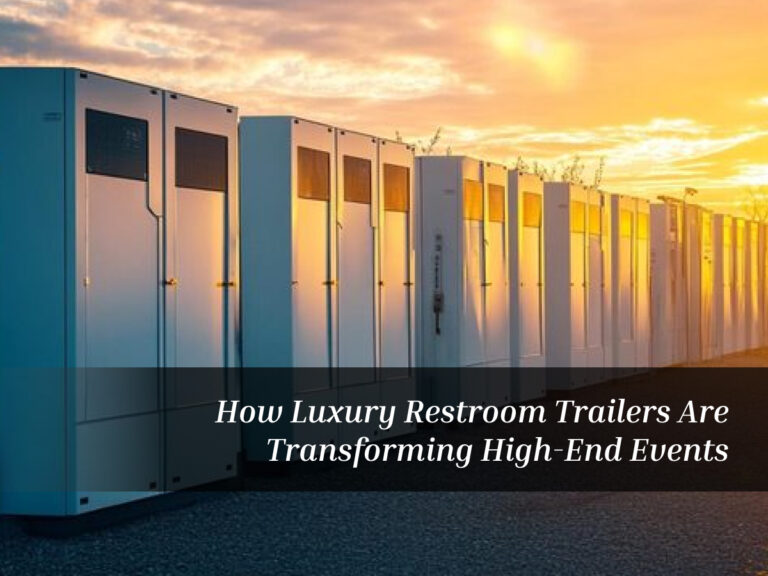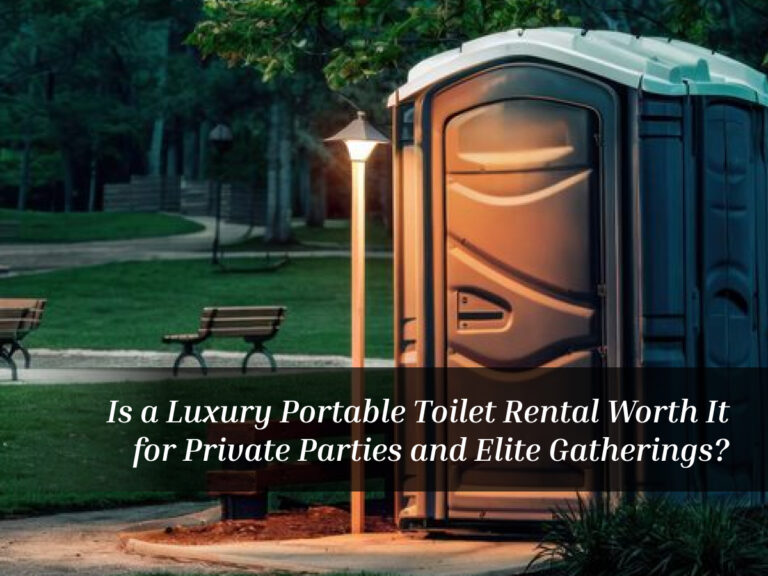Modern events and worksites move fast, and sanitation needs to keep pace.
When your location does not come with built-in restrooms, renting a mobile toilet becomes the simplest way to keep your crowd comfortable and compliant. It is a practical solution wrapped in clean design and smart engineering.
Whether you are hosting a private celebration or managing a construction project, understanding how these units work, what they cost, and how they are set up helps you plan with confidence.
How Mobile Toilet Rentals Work
A mobile toilet is a self-contained restroom unit designed for temporary use. It brings hygiene wherever you need it. Once you choose the type of toilet that fits your occasion, the rental provider delivers the unit, positions it on site, and handles servicing as required.
It is a plug-and-play solution without the plug or the plumbing. Everything inside the unit is built to operate independently, from waste storage to ventilation.
Luxury models elevate the experience. They include flushing systems, mirrors, sinks, high-quality interiors, and lighting that feels closer to a hotel powder room than a portable cabin.
Basic units, on the other hand, focus on functionality. Both do the job, but the experience varies based on the event and your guest’s expectations.
What Influences the Luxury Portable Toilet Rental Cost
The question everyone asks first. What is the luxury portable toilet rental cost or the price of a standard model?
The short answer is that pricing depends on several key factors.
1. Unit Type
A standard mobile toilet costs less because it is built for utility. Luxury portable toilets are priced higher because they include flushing systems, running water, premium interiors, and often climate control.
2. Rental Duration
A one-day rental will cost less than a multi-day or weekly rental. Longer bookings often come with prorated pricing that makes extended use more cost-efficient.
3. Number of Units
Larger events need more units to maintain a smooth flow. The more units you rent, the higher the total cost. Bulk rentals sometimes offer better value.
4. Servicing Requirements
For multi-day events or long-term construction use, the provider must schedule waste removal and restocking. Additional servicing visits affect the final price.
5. Delivery Distance
Transporting these units is a logistical job. The farther the delivery location, the higher the cost may be.
With all these variables, the smartest approach is to choose your unit type first, estimate your crowd size, and align it with your budget. That gives you a clean baseline for planning.
Set Up Steps: What Really Happens on Site
It’s easy to set up a mobile toilet. Before the event starts, all that’s needed is a little room, stable ground, and some preparation.
Step 1: Select the Site
A mobile toilet should be placed on level ground that supports safe movement. Event planners usually position units near foot traffic but slightly off the main path to maintain privacy.
Step 2: Placement and Delivery
The rental team brings the units using a transport truck. They use dollies or built in skids to maneuver them into place. Proper placement ensures stability and accessibility.
Step 3: Leveling and Securing
The unit is checked to make sure it sits evenly and does not wobble. Stability matters because it prevents spills, bad odors, and general discomfort.
Step 4: Stocking Supplies
Before the unit is handed over, it is stocked with tissue, sanitizer, deodorizers, and any other essentials. Luxury units receive an added layer of preparation, from freshwater refills to interior checks.
Step 5: Servicing Schedule
If your event runs long, the rental provider sets up a service plan that includes waste tank pumping and supply refills. This keeps hygiene consistent without you lifting a finger.
Step 6: Pickup
When the event ends or the project wraps up, the provider collects the units, removes the waste responsibly, and restores the site to how it was. A smooth exit is as important as a clean arrival.
When Should You Rent a Mobile Toilet
- Construction zones with no plumbing
- Outdoor weddings and upscale gatherings
- Festivals and concerts
- Community programs, marathons, and charity drives
- Corporate events held in open spaces
Anywhere people gather without permanent restrooms, a mobile toilet becomes the quiet workforce that maintains dignity and comfort.
Closing
To rent a mobile toilet is not complicated once you understand how the process fits together. You choose the right unit, the provider handles the heavy lifting, and your event or worksite stays clean and organized.
Costs depend on the level of comfort you choose, from basic to luxury, and on how long the units stay onsite.
Think of these stations as small but mighty infrastructure. They keep people comfortable. They keep your event flowing. They keep your project compliant. That is the kind of operational reliability everyone can appreciate.
Contact Board Brothers for trusted and affordable service.
FAQs:
What is a mobile toilet and when should I rent one?
A mobile toilet is a portable restroom ideal for events, construction sites, and outdoor gatherings when permanent facilities aren’t available.
How much does it cost to rent a mobile toilet?
Rental costs vary by type, duration, and location. Standard units are usually affordable, while luxury or ADA-compliant units may cost more.
How long can I rent a mobile toilet?
Most rental companies offer flexible options, from a single day to several weeks or months, depending on your event or project needs.
How is a mobile toilet set up and maintained?
Professional rental companies deliver, install, and clean the unit regularly to ensure hygiene and convenience throughout your rental period.
Do I need any permits to rent a mobile toilet?
Permit requirements vary by location. For private property, usually no permit is needed, but public areas may require approval from local authorities.




